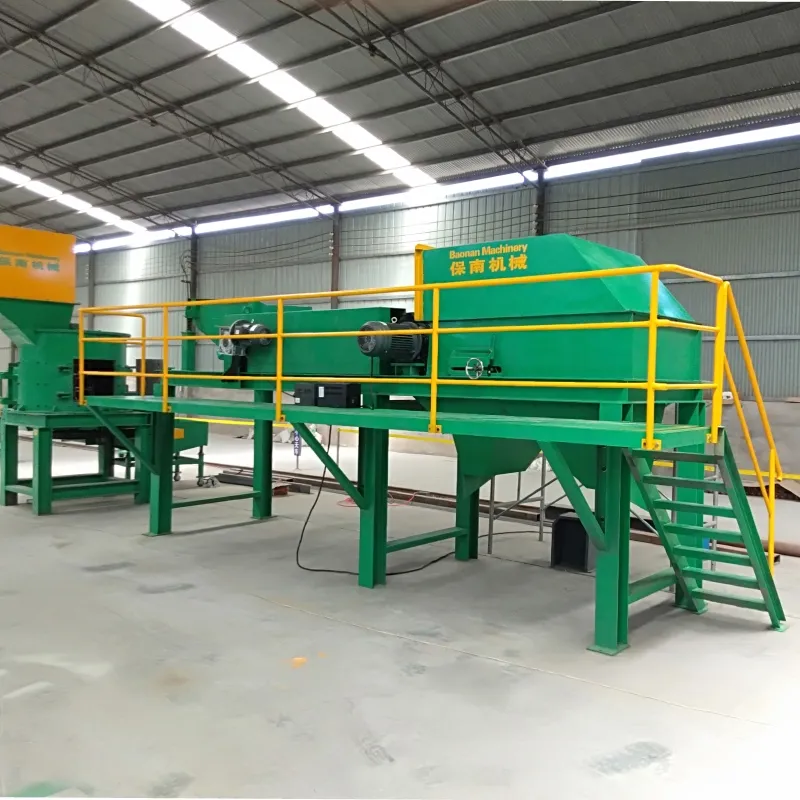

des. . 05, 2024 15:30 Back to list
The Importance of Electronic Rubbish Collection
In today's digital age, electronic devices are an integral part of our lives. From smartphones and laptops to televisions and kitchen appliances, technology continues to evolve at a rapid pace. However, this rapid advancement comes with a significant downside electronic waste (e-waste). As consumers frequently upgrade their gadgets, the amount of electronic rubbish produced is skyrocketing. This phenomenon raises pressing concerns about environmental sustainability and public health, highlighting the importance of effective electronic rubbish collection.
Understanding E-Waste
E-waste refers to discarded electrical or electronic devices. These can include anything from old mobile phones and discarded computers to broken televisions and non-functioning appliances. According to statistics from the United Nations, approximately 53.6 million metric tons of e-waste were generated globally in 2019, a figure expected to rise to 74 million metric tons by 2030. This trend not only reflects the growing reliance on technology but also signals a looming crisis if adequate waste management systems are not implemented.
The Environmental Impact of E-Waste
One of the most pressing issues surrounding electronic rubbish is its environmental impact. Many electronic devices contain hazardous materials, such as lead, mercury, and cadmium. When improperly disposed of, these substances can leach into soil and water, wreaking havoc on ecosystems and posing health risks to humans and wildlife alike. Landfills overflowing with e-waste are a ticking time bomb, threatening to contaminate the environment for generations to come.
Furthermore, the recycling of e-waste is often not conducted properly. In many instances, outdated electronics are sent to developing countries, where workers dismantle them without proper safety protocols, exposing themselves to toxic materials and environmental hazards. This situation not only endangers the health of individuals but also contributes to global pollution levels.
The Economic Potential of E-Waste Recycling

Despite the challenges posed by electronic waste, there exists a significant economic opportunity in e-waste recycling. Many electronic devices contain valuable metals such as gold, silver, and copper, which can be extracted and repurposed. Engaging in responsible electronic rubbish collection can help create a circular economy, wherein raw materials are reused, and the demand for virgin resources is diminished. This not only conserves natural resources but also reduces greenhouse gas emissions associated with mining and manufacturing new materials.
Industries are beginning to recognize the financial benefits of recycling e-waste. Companies that prioritize sustainable practices often see an increase in brand loyalty and consumer trust. By committing to electronic rubbish collection and recycling, businesses can not only minimize their ecological footprint but also attract environmentally conscious consumers.
Solutions for E-Waste Management
To address the challenges of e-waste, a multi-faceted approach is essential. Governments, businesses, and individuals all have roles to play in fostering responsible electronic rubbish collection. Firstly, public awareness campaigns can educate consumers about the importance of recycling e-waste and the potential dangers of improper disposal. Establishing easy-to-navigate collection points for e-waste can also incentivize recycling efforts.
Governments should implement stricter regulations regarding e-waste disposal and encourage manufacturers to develop take-back programs for their products. Collaboration between stakeholders can lead to the creation of effective recycling programs and policies aimed at reducing e-waste production.
Additionally, investing in research and development of eco-friendly materials and more sustainable technology can significantly mitigate the rise of e-waste. By prioritizing longevity and reparability in product design, manufacturers can contribute to reducing the cycle of consumption and waste generation.
Conclusion
The growing issue of electronic rubbish collection is a pressing dilemma of our times. While e-waste poses significant environmental and health risks, it also presents remarkable economic opportunities if managed effectively. By fostering a culture of responsible disposal and recycling, we can protect our planet and its inhabitants from the harmful effects of e-waste. It is imperative that we act now—through collaboration, education, and innovation—to ensure a sustainable future where technology coexists harmoniously with our environment.
Latest news
Troubleshooting Common Eddy Separator Problems
NewsJul.04,2025
The Role of Metal Recycling Plants in Circular Economy
NewsJul.04,2025
The Impact of Recycling Line Pickers on Waste Management Costs
NewsJul.04,2025
Safety Features Every Metal Shredder Should Have
NewsJul.04,2025
How Industrial Shredders Improve Waste Management Systems
NewsJul.04,2025
How Cable Granulators Contribute to Sustainable Recycling
NewsJul.04,2025